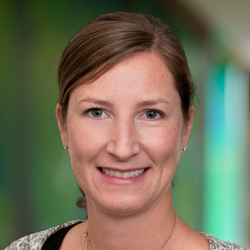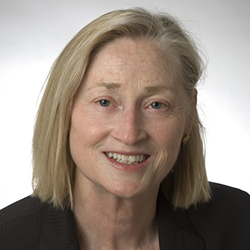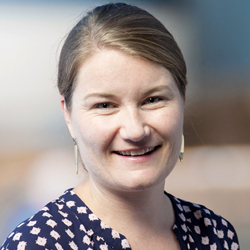Suicide Prevention Program
What is the Suicide Prevention Program at Seattle Children’s Hospital?
Seattle Children’s Suicide Prevention Program is an organization-wide effort to save lives by identifying and treating youth who are thinking about suicide. If you, your child, family or friend needs help right away, call or text 988. See more crisis resources below.
Suicide is the second leading cause of death for youth ages 10 to 24. In this age group, death by suicide is more common than from cancer, heart disease, AIDS, birth defects, stroke, pneumonia, influenza and lung disease combined. Research shows that 77% of youth who die by suicide had healthcare contact in the last year, with 38% having had healthcare contact within a month prior.
Suicide is also preventable.
Seattle Children’s is committed to addressing this public health crisis and achieving the aspirational goal of zero suicides by implementing the Zero Suicide framework. Learn more about Zero Suicide.
“To be surrounded by such knowledge, information and expertise was a tremendous relief. [Seattle Children's] made the system more manageable. It gave us fast and furious access to services and psychologists.”
Suicide Screening
Patients 10 and older will be asked questions about suicide so that we may provide preventative care for youth at risk for suicide. Research shows that asking about suicide does not increase risk. In fact, evidence shows that screening with follow-up reduces suicide attempts and suicide deaths. Learn more about what to expect about suicide screening at Seattle Children’s.
Resources for Patients and Families
- Getting Help in a Mental Health Crisis (PDF) (Amharic, Arabic, Russian, Simplified Chinese, Somali, Spanish, Ukrainian, Vietnamese)
- Preventing Suicide
- Gun Safety
- Mental health resource hub
- Washington’s Mental Health Referral Service for Children and Teens
- Finding Mental Health Care in Washington State: Where to Start (video class) (Spanish)
- Teen Link
- Stomp Out Bullying
Resources for Primary Care to Support Families
Suicide Prevention Program partnered with Seattle Children’s Care Network to create Behavioral Health Continuum of Care: A Series for Primary Care Providers. The series provides education about the continuum of mental health care or levels of care in Washington state and how, from a primary care perspective, we can support families in accessing care.
Navigate through the training modules to learn about the different levels of care. We recommend watching them in order because we will reference background information we share in earlier courses, later in the series. However, the courses are set up so that you can select a specific topic to receive focused training.
Getting Started: The Basics and Things to Know
Gain an understanding of consent laws in Washington state, the different levels of care, and how to help families begin searching for care.
Navigating Outpatient Care
Understand what Washington State insurance options are available and instructions to provide to families seeking outpatient care. Learn about support resources available to assist families with accessing care.
Wraparound with Intensive Services: WISe Program
Learn about Medicaid’s Wraparound with Intensive Services (WISe), including who is eligible and how to support families with a referral.
Intensive Outpatient and Partial Hospitalization Programs
Learn about intensive outpatient and partial hospitalization programs, when families may want to pursue this level of care, and how to support with referrals.
Inpatient Hospitalization
What inpatient hospitalization is and how to access services. Understand when a youth might need inpatient hospitalization.
Residential Programs
Learn what residential treatment programs are and what families should do to access residential treatment.
Class resources
- DOH Behavioral Health Agencies
- Wellpoint
- Community Health Plan of WA
- Coordinated Care
- Molina
- United Healthcare Community Plan
- Tricare Medical Management Nomination form
- WA Mental Health Referral Service
- Seattle Children’s Partnership Access Line
- Wraparound with Intensive Services: WISe Program
- Intensive Outpatient and Partial Hospitalization Programs
- King County: Children’s Crisis Outreach and Response System (CCORS)
- Snohomish County: Mobile County Crisis Services
- Pierce County: Carelon Behavioral Health
- Pierce County: Youth Engagement Services (YES)
- Skagit, San Juan, Whatcom and Island Counties: Mobile Crisis Outreach Team (MCOT)
- Thurston and Mason Counties: Olympic Health and Recovery Services
- Lewis County: Mobile Crisis Response Team
- Benton and Franklin Counties: Stabilization and Wellness in Families (SWIFT)
- Clark, Skamania and Klickitat Counties: Carelon Behavioral Health
- Chelan, Douglas, Grant, and Okanogan Counties: Carelon Behavioral Health
- Kitsap County: Mobile Crisis Outreach Team
- Seattle Children’s Behavioral Health Crisis Care Clinic
- Seattle Children’s Psychiatric Urgent Care
How can I learn more?
If you have any questions about our patient safety efforts, ask your child’s Seattle Children’s healthcare provider or ask to speak with a mental health professional. They may need to follow up with you by phone after your appointment.
You may also send an email or call 206-987-4442 to ask more questions about the Suicide Prevention Program and how we conduct screenings. This email address and phone number are not resources for crisis support.
Learn more about suicide, including common warning signs and ways to prevent suicide.
What is the Zero Suicide Initiative?
Zero Suicide is a nationwide initiative to improve suicide prevention within healthcare systems and save lives.
Seattle Children’s launched the Zero Suicide Initiative Pathway in 2019 to bring suicide risk screening to medical clinics. In 2022, Seattle Children’s and 16 other children’s hospitals and health systems committed to implementing the full Zero Suicide framework as part of a national collaborative funded by Cardinal Health Foundation. The aim is to develop and implement a pediatric-specific, data-driven approach to improve the identification and care of children at risk for suicide in children’s hospitals and health systems.
Zero Suicide elements
- Lead system-wide culture change committed to reducing suicides.
- Train a competent, confident and caring workforce.
- Identify individuals with suicide risk via comprehensive screening and assessment.
- Engage all individuals at risk of suicide using a suicide care management plan.
- Treat suicidal thoughts and behaviors directly using evidence-based treatments.
- Transition individuals through care with warm hand-offs and supportive contacts.
- Improve policies and procedures through continuous quality improvement.
Learn more about the Zero Suicide Toolkit.
Caring Contacts
Research shows that meaningful connections can have a direct impact on a person’s well-being. The Suicide Prevention Program includes new ways of following up with patients after discharge from Seattle Children’s care. Through a new program called Caring Contacts, Seattle Children’s will send encouraging and supportive text messages to patients who choose to take part in the program. See Caring Contacts for more details about what to expect and how to enroll. (Amharic, Arabic, Russian, Simplified Chinese, Somali, Spanish, Vietnamese)
Team
Suicide Prevention Program faculty leaders
- Kathy Brewer, MS, LMHC, manager, Psychiatry and Behavioral Medicine
- Josephine S. JudahBram, MHA, operations supervisor, Suicide Prevention Program and Crisis Care Clinic
- Kate Beemer, LICSW, MHP, mental health therapist
- Jennifer Edith Landaverde, LMFT, mental health therapist, Autism Center
- Jenny Sleeper, LSWAIC, mental health therapist associate, Autism Center
- Larissa VanderMeer, MA, LMHCA, mental health therapist associate, Autism Center
- Leah McCartney, BS, program management specialist
- McCayla Butler, BA, family advocate case manager
- Hilary Smith, MEdu, family advocate case manager, Crisis Care Clinic
How do I get involved with the Suicide Prevention Program?
We are developing a Suicide Prevention Advisory Board to assist in the development of our suicide prevention processes and policies to support youth seen at Seattle Children’s. We are looking for adults who:
- Have experienced suicidal thoughts or behaviors as a youth or teenager
- Have a youth in their life who has experienced suicidal ideation or suicidal behaviors
- Have lost a youth in their family or friends from death by suicide
The Suicide Prevention Advisory Board recruits from June to August and meets monthly from September to May. Please be aware — this is not a support group. Participants will be asked to share their experiences to inform our work at Seattle Children’s.
Do you have ideas, questions or concerns to share with the Suicide Prevention team, or are you interested in learning more about the family advisory board? Please send an email directly or share with us.
- Suicide Prevention Advisory Board (PDF) (Amharic) (Arabic) (Russian) (Simplified Chinese) (Somali) (Spanish) (Vietnamese)
Contact Us
Send an email to ask about the Suicide Prevention Program. You may also reach the Suicide Prevention team by phone at 206-987-4442. This email address and phone number are not resources for crisis support.
Related Links
- Psychiatry and Behavioral Medicine
- Behavioral Health Crisis Care Clinic
- Generation REACH: Transforming Mental Health Care for All Youth and Families
Support Us
Community support makes this life-saving work possible. If you are interested in supporting the Suicide Prevention Program at Seattle Children's, please visit our donation page.


